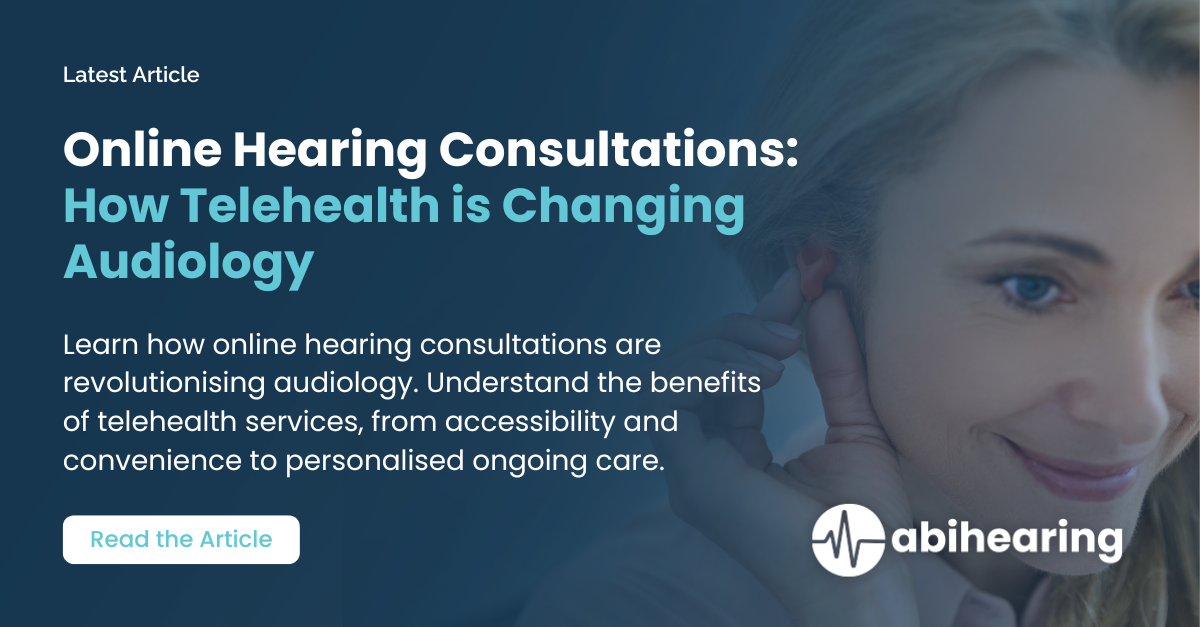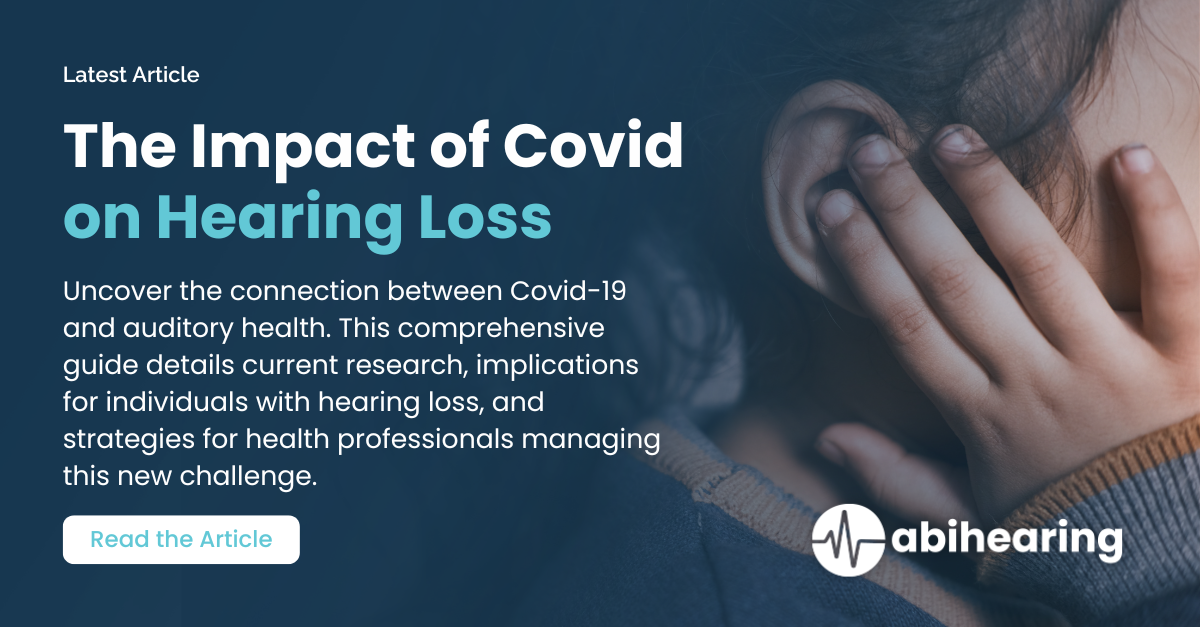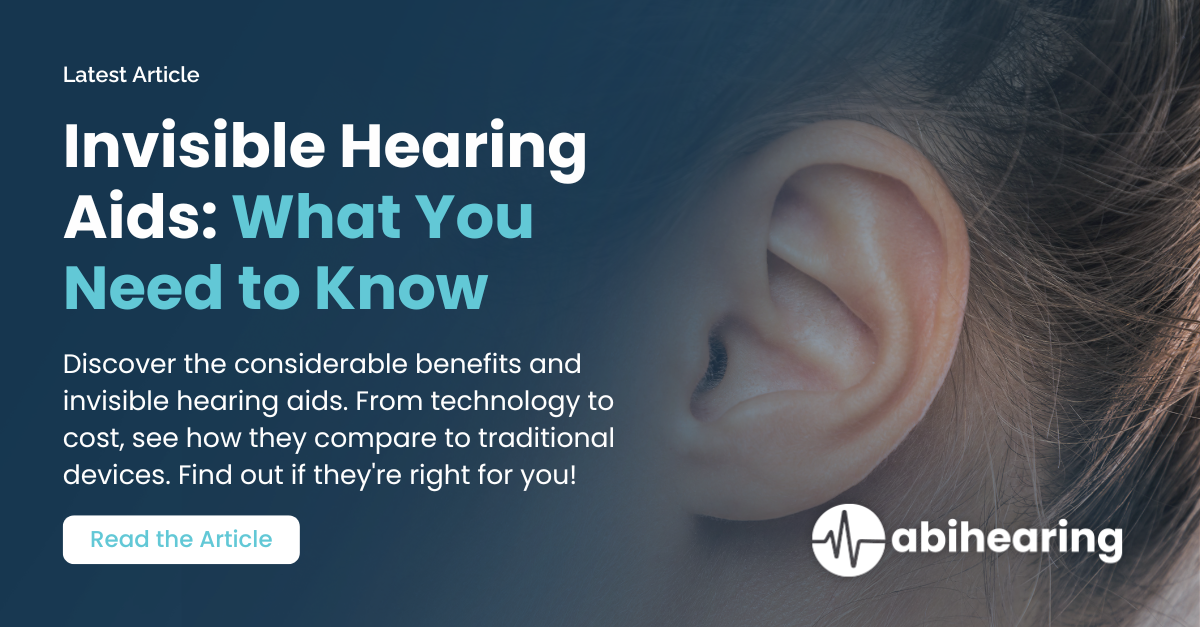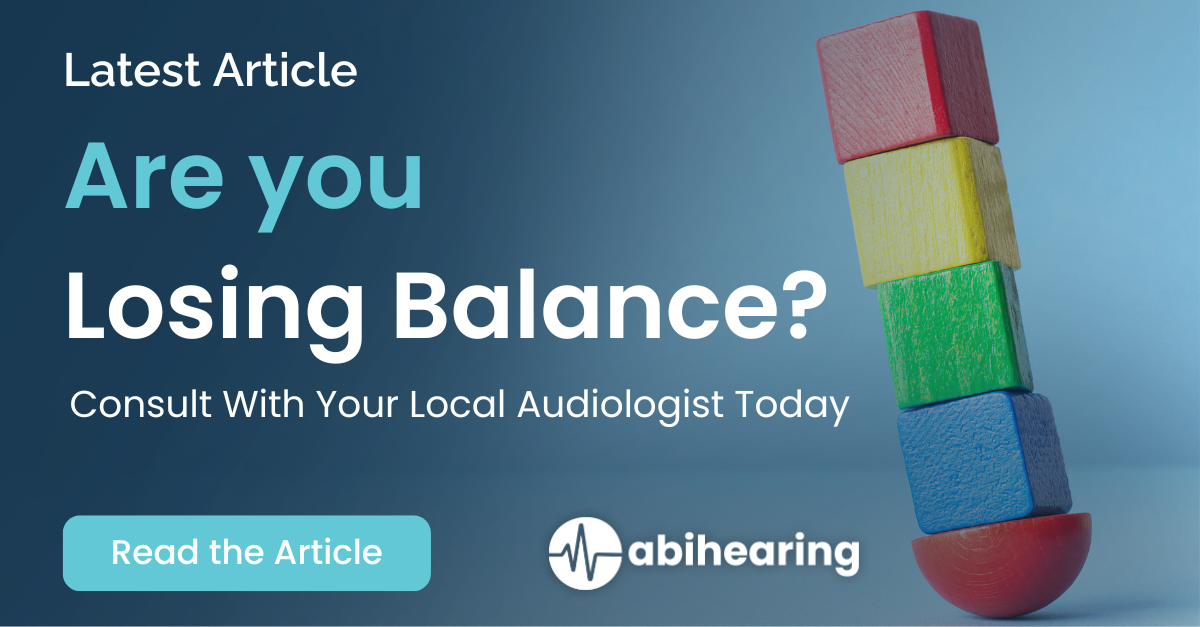Identifying the Early Signs of Hearing Loss
Hearing loss is a common condition that may affect individuals of all ages. The inability to hear properly can greatly impact one's quality of life, leading to social isolation and other negative consequences. Nevertheless, there are ways to identify the early signs of hearing loss, understand the condition, and prevent it from progressing. This article provides an overview of the symptoms and risk factors of hearing loss, as well as the treatments and strategies that can help individuals with hearing loss lead fulfilling lives.
Understanding Hearing Loss
Hearing is an essential sense that allows us to communicate and interact with the world around us. Unfortunately, hearing loss is a common problem that affects millions of people worldwide. In this article, we will explore the different types of hearing loss, their causes and the impact of untreated hearing loss.
Types of Hearing Loss
As mentioned earlier, there are three main types of hearing loss: conductive, sensorineural, and mixed.
Conductive Hearing Loss: Obstruction or Damage to Outer/Middle Ear
Conductive hearing loss occurs when sound waves are hindered from reaching the inner ear due to obstructions or damage in the outer or middle ear. This type of hearing loss can be caused by various factors, such as:
Ear Infections
Frequent or chronic ear infections can lead to conductive hearing loss. Inflammation and fluid build-up in the middle ear can disrupt the transmission of sound waves.
Allergies
Allergic reactions can cause inflammation and congestion in the nasal passages and Eustachian tubes, leading to conductive hearing loss.
Perforated Eardrum
A perforated eardrum, which can result from trauma, infection, or barotrauma (rapid changes in pressure), can disrupt the normal transmission of sound to the middle ear.
Earwax Buildup
Excessive earwax accumulation can block the ear canal, causing conductive hearing loss. Removal of the earwax typically resolves the issue.
Sensorineural Hearing Loss: Inner Ear or Auditory Nerve Affected
Sensorineural hearing loss refers to the impairment of the inner ear or auditory nerve, resulting in difficulties in receiving and processing sound signals. This type of hearing loss can be caused by various factors, including:
Age-related Factors (Presbycusis)
Natural ageing processes can lead to the gradual deterioration of the sensory cells in the inner ear, resulting in sensorineural hearing loss.
Genetic Factors
Certain genetic factors can predispose individuals to sensorineural hearing loss. Inherited gene mutations can affect the development or functioning of the inner ear structures.
Noise-induced Hearing Loss
Exposure to loud noises, either occupational or recreational, can damage the delicate structures of the inner ear, leading to permanent sensorineural hearing loss.
Ototoxic Medications
Certain medications, such as certain antibiotics, chemotherapy drugs, and high-dose aspirin, can have detrimental effects on the inner ear and cause sensorineural hearing loss.
Mixed Hearing Loss: Combination of Conductive and Sensorineural
Mixed hearing loss refers to a combination of conductive and sensorineural hearing loss. This type of hearing loss can occur due to various factors and presents unique challenges in terms of treatment and management.
Factors contributing to mixed hearing loss may include a combination of those mentioned above, such as chronic ear infections leading to conductive hearing loss, coupled with age-related sensorineural hearing loss. It is essential to conduct a thorough assessment to identify and address the specific causes and factors contributing to mixed hearing loss.
Understanding the distinctions between these types of hearing loss aids in accurate diagnosis, appropriate treatment planning, and improved outcomes for individuals seeking intervention for their hearing difficulties.
The Impact of Untreated Hearing Loss
Untreated hearing loss can have a significant impact on one's quality of life. It can cause physical, emotional and social problems, such as difficulty communicating with family and friends, depression, and anxiety.
Individuals with untreated hearing loss may also experience a decline in cognitive function and an increased risk of falls and accidents. This is because hearing loss can make it difficult to detect warning sounds, such as alarms or approaching vehicles.
Fortunately, there are many treatment options available for hearing loss, including hearing aids, cochlear implants, and assistive listening devices. If you suspect that you or a loved one may have hearing loss, it is important to seek the advice of a qualified healthcare professional.
Early Signs and Symptoms
Here are some early signs and symptoms of hearing loss to look out for:
Difficulty Hearing in Noisy Environments
One of the most common early signs of hearing loss is having difficulty understanding speech in noisy environments. This can include situations such as restaurants, parties, or group conversations. Individuals with hearing loss may find it challenging to distinguish different sounds from each other, leading to confusion and frustration. They may also find it difficult to follow conversations in environments with a lot of background noise.
For example, imagine trying to have a conversation with friends at a crowded bar. The noise level is high, and there are many different conversations happening at once. If you have hearing loss, you may struggle to hear your friends' voices over the background noise.
Muffled Sounds and Speech
Another warning sign of hearing loss is muffled sounds and speech. Individuals may have difficulty hearing high-pitched sounds, like a child's voice or birds singing, or certain consonants, such as "s," "sh" or "f," that require greater clarity in pronunciation. As a result, words may sound distorted or incomplete.
For example, imagine listening to a song on the radio. If you have hearing loss, you may struggle to hear the lyrics clearly. The words may sound muffled or garbled, making it difficult to understand the meaning of the song.
Tinnitus: Ringing or Buzzing in the Ears
Tinnitus is a common symptom of hearing loss, which refers to a ringing, buzzing, or whirring sound in the ears that is not caused by an external source. It can be a constant or intermittent sound and may worsen in quiet environments or at night.
For example, imagine trying to fall asleep at night. If you have tinnitus, you may hear a constant ringing or buzzing sound in your ears, making it difficult to relax and fall asleep.
Struggling to Understand High-Pitched Sounds
People with hearing loss may also have difficulty understanding high-pitched sounds, such as a telephone ringing or a dog barking. This may result in missing out on important cues and information, leading to communication breakdown.
For example, imagine trying to answer the phone. If you have hearing loss, you may struggle to hear the ringing sound, causing you to miss the call. This can be frustrating and may lead to missed opportunities.
Frequently Asking Others to Repeat Themselves
Individuals with hearing loss may ask others to repeat themselves, speak louder or slower, or turn up the volume on the radio or television frequently. This can be a sign of hearing loss and may be challenging for both the individual and their communication partners.
If you are experiencing any of these early signs and symptoms of hearing loss, it is important to seek help from a hearing healthcare professional. They can assess your hearing and recommend appropriate treatment options to improve your quality of life.
Risk Factors for Hearing Loss
Hearing loss is a common problem that affects millions of people around the world. It can be caused by a variety of factors, including age, exposure to loud noises, genetics, and certain medical conditions or medications.
Age-Related Hearing Loss
As mentioned earlier, age-related hearing loss affects most people over the age of 65. The risk of developing hearing loss increases with age, due to the natural ageing process that affects the inner ear and other mechanisms involved in hearing. This type of hearing loss is known as presbycusis.
Presbycusis is a gradual process that occurs over time, and it can be difficult to notice at first. People with age-related hearing loss may have trouble hearing high-pitched sounds, like the voices of children or birds. They may also have difficulty hearing in noisy environments, like restaurants or parties.
Exposure to Loud Noises
Exposure to loud noises, such as music concerts or construction sites, can cause noise-induced hearing loss, a type of sensorineural hearing loss. This risk can be reduced by wearing earplugs or earmuffs in noisy environments and taking breaks from noise exposure.
Noise-induced hearing loss can be temporary or permanent, depending on the level and duration of exposure to loud noises. People who work in noisy environments, like musicians or construction workers, may be at higher risk of developing this type of hearing loss.
It is important to protect your hearing from loud noises, as in many cases, once hearing is lost, it cannot be restored. In addition to wearing earplugs or earmuffs, you can also reduce your exposure to loud noises by turning down the volume on your music or television, and avoiding noisy activities when possible.
Genetic Factors
Hearing loss can also be caused by genetic factors that affect the development and function of the inner ear or the auditory nerve. Some genetic conditions, like Usher syndrome, may cause both hearing loss and visual impairment.
Genetic hearing loss can be present at birth or develop later in life. It can affect one or both ears, and may be mild or severe. Genetic testing can help identify the cause of hearing loss in some cases, and can help determine the best course of treatment.
Medical Conditions and Medications
Certain medical conditions, such as diabetes, high blood pressure or heart disease, may increase the risk of hearing loss. Additionally, some medications, like antibiotics or chemotherapy drugs, may cause hearing loss as a side effect.
It is important to tell your doctor if you are experiencing hearing loss, as it may be a symptom of an underlying medical condition. Your doctor may be able to adjust your medications or recommend treatments to help manage your hearing loss.
How to Test for Hearing Loss
Self-Assessment and Online Tests
Individuals who suspect they may have hearing loss can take self-assessment tests to determine if they have any symptoms. These tests may ask questions about one's hearing ability in different environments and situations. For example, some questions may ask if the individual has difficulty hearing conversations in noisy environments or if they have trouble hearing high-pitched sounds. It is important to note that self-assessment tests are not a substitute for professional hearing evaluations but can provide a useful starting point for individuals who are concerned about their hearing.
Online hearing tests are also available but should be used with caution and complemented by professional hearing evaluation. These tests typically involve listening to a series of tones and responding when they are heard. While online hearing tests can be convenient, they may not always be accurate and can miss certain types of hearing loss. Therefore, it is recommended that individuals seek professional hearing evaluation if they suspect they have hearing loss.
Professional Hearing Evaluations
Professional hearing evaluations are conducted by an audiologist or hearing healthcare professional who will use a range of tests to determine the type and degree of hearing loss. These tests may include pure-tone audiometry, speech audiometry, and other hearing-related exams. During a professional hearing evaluation, the individual will wear headphones and listen to a series of sounds at different frequencies and volumes. The audiologist will record the individual's responses to determine the softest sounds that they can hear.
Speech audiometry tests may also be used to evaluate an individual's ability to hear and understand speech. During this test, the individual will listen to a series of words or sentences and repeat them back to the audiologist. This can help the audiologist determine how well the individual can hear and understand speech in different environments.
Understanding Your Audiogram
After the hearing evaluation is complete, the hearing healthcare professional will share the results with the individual. An audiogram is a visual representation of the hearing test results, which shows the softest sounds that an individual can hear at different frequencies. The audiogram is divided into different frequency ranges, with low frequencies on the left and high frequencies on the right. The volume or loudness of the sounds is represented by the height of the symbols on the audiogram.
Based on the audiogram, the professional can recommend appropriate treatments and strategies for the individual's hearing loss. For example, if the individual has mild hearing loss in the high frequencies, they may benefit from hearing aids that amplify high-pitched sounds. If the individual has severe hearing loss in both ears, they may benefit from cochlear implants, which are electronic devices that stimulate the auditory nerve and provide a sense of sound.
When to Seek Help
Recognising the Need for Professional Assistance
If you experience any of the symptoms of hearing loss or have concerns about your hearing, it's important to seek professional help as soon as possible. Many types of hearing loss can be treated, and early intervention can prevent or reduce the negative effects of hearing loss on your daily life.
When seeking professional help, it's essential to choose the right hearing healthcare provider. Look for providers who are experienced, qualified, and licensed to diagnose and treat hearing loss. They should also be willing to work with you to find the best solutions for your individual needs and preferences.
Before your appointment, prepare a list of questions and concerns that you'd like to address with your provider. Bring a friend or family member for support, and be prepared to share your medical history, medications, and any other relevant information that may affect your hearing
Schedule An Appointment With Our Hearing Health Experts Today!
There are a few different types of Bulk Billed Hearing Tests. The most common type is an audio diagnostic test, which is used to screen for hearing loss. This type of test usually takes around 30 minutes to complete.
If you are interested in getting a Bulk Billed Hearing Test, talk to the team at Abi Hearing. They will be able to tell you if you are eligible for a test and book your appointment at our Bundoora Audiologist Clinic.
The entire team at Abi Hearing looks forward to meeting you. We are ready to answer your questions, fully understand your hearing challenges, and introduce you to exciting new technologies that can give you the excellent hearing you've been wanting.
Book an Appointment
We will get back to you as soon as possible.
Please try again later.
Read the Latest Articles for Abi Hearing Clinic's Audiology
& Hearing Loss Experts
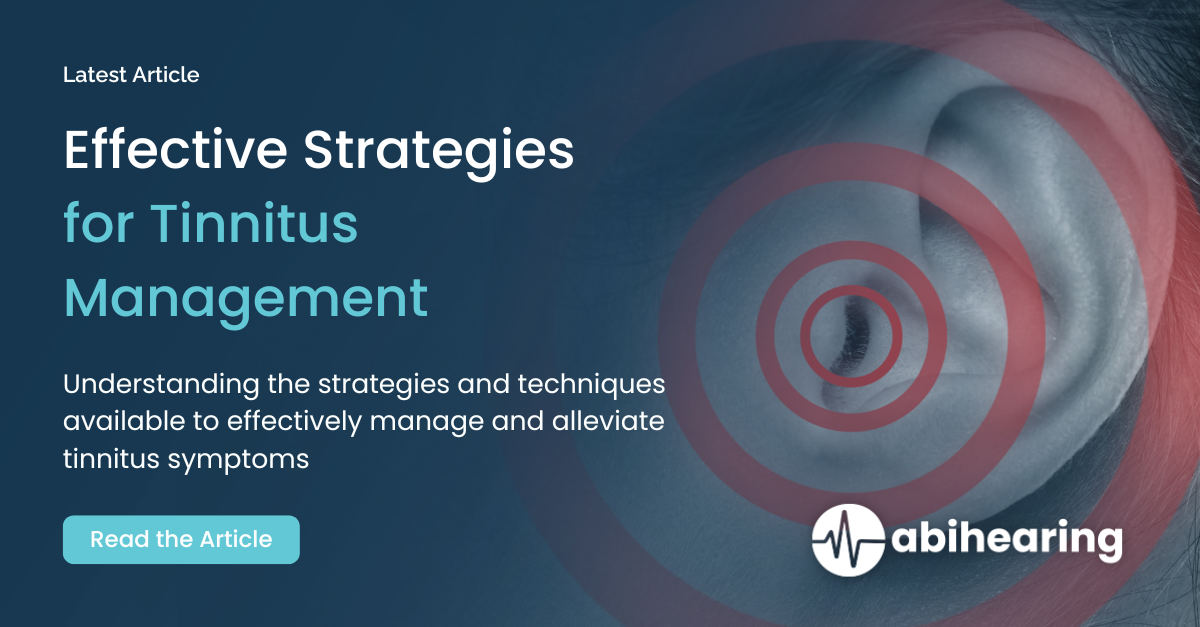
Common Questions About Hearing Aids
-
What does a hearing aid do?
A hearing aid is a device worn behind the ear, in the outer ear canal, or in the middle ear to amplify sounds. It can be used to improve mild to moderately-severe losses due to sensorineural hearing impairment and conductive hearing impairment. Some hearing aids also have a built-in T-coil (telecoil) which can be used to improve the listening experience for people with single-sided deafness, or when there is a lot of noise present.
Hearing aids make it possible for people with mild to severe hearing loss to hear sounds more clearly. There are different types of hearing aids that can be used in either one or both ears.
A digital hearing aid is an electronic device that amplifies sound. Digital hearing aids convert sound waves into electrical signals that are then amplified. This type of hearing aid is a more modern technology offering greater benefits to users.
-
How do I know if I need a hearing aid?
If you have trouble hearing, or if people complain that you're turning the TV volume up too high, you may need a hearing aid. A hearing test can confirm whether you have a problem.
-
How do I know which type of hearing aid is right for me?
Your audiologist will help you choose the type of hearing aid that's best suited for your needs and lifestyle. Factors that will be considered include the severity of your hearing loss, your listening environment, and your budget.
-
What are the different types of hearing aids?
The four main types of hearing aids are:
1. Behind-the-ear (BTE)
This is the most common type of hearing aid. It sits behind the ear and has a clear plastic tube that goes down into the ear canal. BTEs are available in a variety of styles and colors, and are the most durable type of hearing aid.
2. In-the-ear (ITE)
This type of hearing aid is custom made to fit snugly in the outer part of your ear. ITEs are less visible than BTEs, but they may not be as durable.
3. In-the-canal (ITC) and completely-in-the canal (CIC)
These are the smallest and most discreet type of hearing aid. ITCs and CICs sit in the ear canal and are not visible once they are in place. They can be more difficult to adjust than other types of hearing aids.
4. Invisible Hearing Aid (IHA)
An invisible hearing aid is designed to be worn for extended periods of time to minimise the hassle of managing your hearing health. The devices are inserted deep into the canal, by a qualified Audiologist and remain there for their lifecycle.
-
What are the different parts of a hearing aid?
The different parts of a hearing aid include:
1. The microphone
This is the part of the hearing aid that picks up sound from the environment.
2. The amplifier
This part of the hearing aid increases the volume of sound that is picked up by the microphone.
3. The receiver
This is the part of the hearing aid that sends sound to your ear.
4. The battery
This powers the hearing aid. Hearing aids use either disposable or rechargeable batteries.
5. The processor
This controls how the hearing aid sounds and adjusts to different environments.
6. The casing
This is the outer shell of the hearing Aid.
-
What are the different features of a hearing aid?
There are many different features that you can choose from when you buy a hearing aid. Some common features include:
1. Volume control
This lets you adjust how loud or soft the sound is coming through the hearing aid.
2. Tone control
This allows you to adjust the tone of the sound, making it sound more natural.
3. Noise reduction
This feature reduces background noise, making it easier to hear conversation.
4. Directional microphones
This feature allows you to adjust the hearing aid so that it picks up sound from the front, making it easier to hear in noisy environments.
5. Telecoil
This is a special setting that helps you hear better on the telephone and in places where there is a loop system set up (such as a movie theatre or museum).
-
What are the different types of hearing loss?
There are two main types of hearing loss: conductive and sensorineural.
1. Conductive hearing loss
This type of hearing loss occurs when there is a problem with the structure of the ear or the way that sound waves are conducted through the ear. Conductive hearing loss can be caused by things like wax build-up, infection, or damage to the ear.
2. Sensorineural hearing loss
This type of hearing loss occurs when there is a problem with the inner ear or the way that the brain interprets sound. Sensorineural hearing loss can be caused by things like age-related hearing loss, noise exposure, or injury.
-
What are the benefits of using a hearing aid?
There are many benefits to using a hearing aid. Some of the most important benefits include:
1. Improved communication
Hearing aids help you hear better in both quiet and noisy environments, making it easier to communicate with others.
2. Improved quality of life
Hearing aids can help you stay connected to your loved ones and participate in activities that you enjoy.
3. Improved safety
Hearing aids help you hear warning signals and other important sounds, making it easier to stay safe in your environment.
4. Improved mental health
Research has shown that using a hearing aid can improve your mood and overall well-being.
5. Improved self-confidence
Using a hearing aid can help you feel more confident and social, which can lead to a better quality of life.
6. Reduces the risk of developing dementia
Research has shown that using a hearing aid can reduce the risk of developing dementia by up to 50%.
7. Reduces the risk of falling
Hearing aids help you hear better in your environment, which can help you stay safe when walking or climbing stairs.
8. Reduces the risk of social isolation
Hearing loss can often lead to social isolation, but using a hearing aid can help you connect with others and stay involved in your community.
9. Affordable
Many health insurance plans cover the cost of hearing aids, making them more affordable for those who need them.
10. Customizable
Hearing aids come in many different styles and colours, so you can find one that fits your personality and lifestyle.
-
Which hearing aids can I choose from at Abi Hearing?
-
How do I know if I need a hearing aid?
We all know that hearing loss can cause many problems. It can be a serious issue for those who work in noisy environments, in the office or on the construction site, or an inconvenience for someone wanting to tune into their favourite TV show. If you have any of the following symptoms, it is time to schedule an appointment with your audiologist:
Any noticeable change in your hearing
You have a hearing loss that is severe enough to interfere with your life
You have tinnitus
You have sudden and unexplained hearing loss
You are not able to hear a conversation from across the room or in a quiet room
You are missing conversations on your Phone or in the car
You experience dizziness, vertigo, or ringing in the ears
If you are experiencing any of these symptoms, it is important to schedule an appointment with your audiologist. The sooner you get treatment, the easier it will be to manage your symptoms and the less they will impact your life.
-
Can hearing aids cause vertigo?
There is no evidence to suggest that properly fitted hearing aids can cause vertigo. However, if you are experiencing vertigo or other dizziness-related symptoms, it is important to speak with your audiologist. There may be another underlying cause for your symptoms that needs to be addressed.
-
How often do hearing aids need to be replaced?
Hearing aids do not need to be replaced on a regular basis. However, over time they may start to lose their effectiveness or become damaged. If you notice that your hearing aids are not working as well as they used to or if they are damaged, it is important to see your audiologist for a replacement.
-
Can hearing aids cause headaches?
There is no evidence to suggest that properly fitted hearing aids can cause headaches. However, if you are experiencing headaches, it is important to speak with your audiologist. There may be another underlying cause for your symptoms that needs to be addressed.
-
Are hearing aids waterproof?
Most hearing aids are not completely waterproof, but most models come with a water-resistant coatings that can protect them from light rain or accidental exposure to water. It is important to remove your hearing aids before swimming or showering.
-
This Page Talks About:
Vestibular systems, unbiased advice, trained, tinnitus management, tinnitus, tests, test, support, specialists, services, seek, ringing, request, range, quality, qualified, purchase hearing aids, professional, patients, melbourne vic, melbourne, life, latest technology, latest equipment, independent audiologists, independent, helpful, hearing tests, hearing test, hearing services, hearing needs, hearing loss, hearing health, hearing concerns, hearing care, hearing australia, hearing assessment, hearing aids, hearing aid manufacturer, hearing aid, hearing, hear, health, friendly environment, free online hearing test, free hearing check, free hearing, foster, ears, ear wax removal, ear wax, ear, doctors, devices, contact, communication, clinic, clients, children, businesses, better hearing, best audiologists, australia, audiology, audiologists, audiologist near me, audiologist, appointment, aids, aid brands, ages, advice, adults.
Subscribe to our newsletter to stay up to date with our latest offers.
Contact Us
We will get back to you as soon as possible.
Please try again later.
Williamstown Hearing Clinic
54 Electra Street,
Williamstown, Victoria
3016
Business Hours:
Monday to Friday
9.00am to 5.00pm
Phone: (03) 9399 9536
Email: info@abihearing.com.au
North Melbourne Hearing Clinic
Suite 228/55 Flemington Rd,
North Melbourne, Victoria
3051
Business Hours:
Thursday to Friday
9.00am to 5.00pm
Phone: (03) 9326 5334
Email: info@abihearing.com.au
Williams Landing Hearing Clinic
111 Overton Road,
Williams Landing, Victoria,
3027
Business Hours:
Thursday to Friday
9.00am to 5.00pm
Email: info@abihearing.com.au
Point Cook Hearing
Clinic
15 Kenswick Street,
Point Cook, VIC,
3030
Business Hours:
Thursday to Friday
9.00am to 5.00pm
Phone: (03) 7018 7477
Email: info@abihearing.com.au

